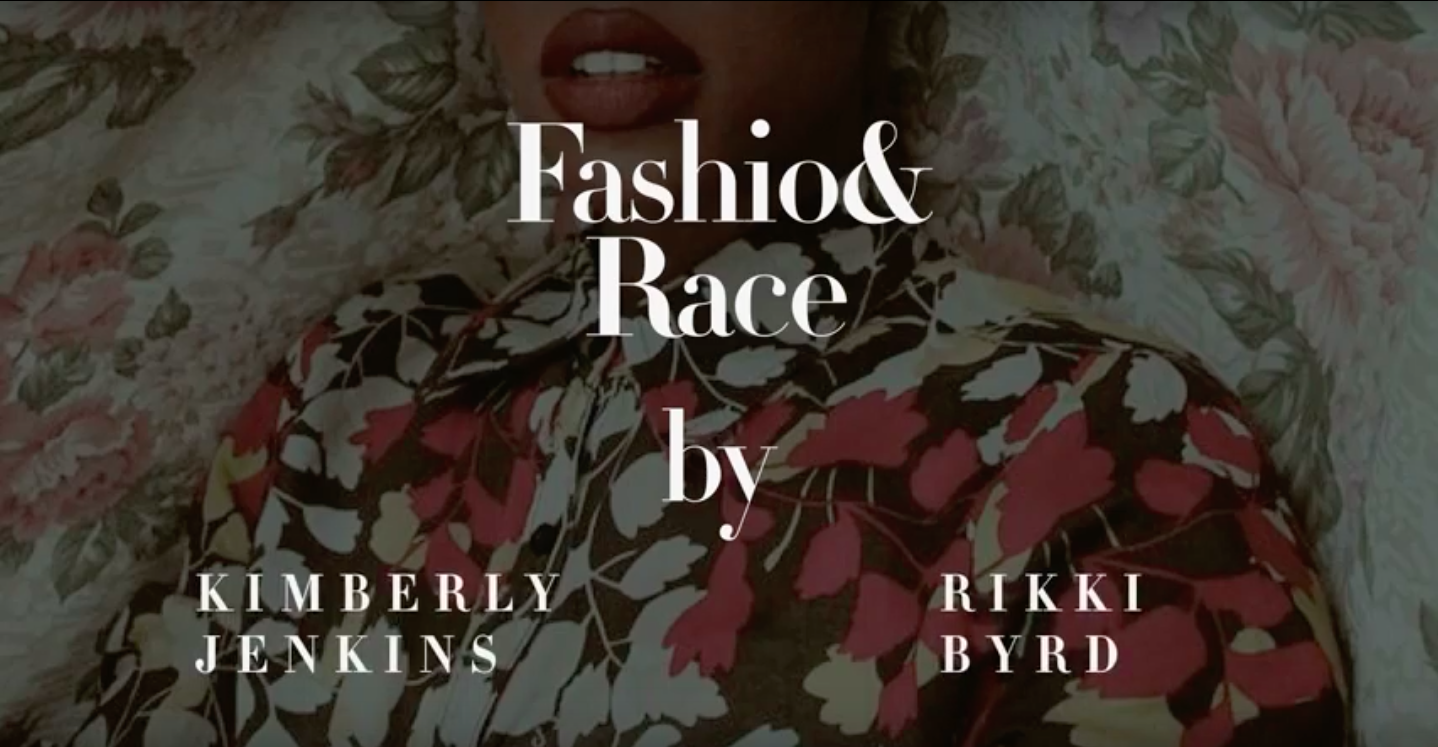Kim Jenkins, MA Fashion Studies ’13
Kim Jenkins specializes in the sociocultural and historical influences behind why we wear what we wear, specifically addressing how politics, psychology, race, and gender shapes the way we ‘fashion’ our identity. She is a part-time lecturer at Parsons School of Design, Visiting Assistant Professor at Pratt Institute, and amongst the pioneering cohort of graduates from the MA Fashion Studies program at Parsons. In Fall 2016, Kim debuted the undergraduate course “Fashion and Race” at Parsons, examining the implications of the social construct of race in fashion history, business and image-making.

Slide from presentation by designer Patricia Encarnacion.
Fashion and Race
Rikki Byrd, MA Fashion Studies ’16 and Kim Jenkins, MA Fashion Studies ’13
2016
Syllabi
The Fashion and Race Syllabus is an ongoing academic project exploring the intersection of fashion and race, expanding upon and decentralizing fashion history. The project also strives to cultivate and sustain a (virtual) research space for fashion scholars of color.
How would you describe your day to day job and/or artistic practice?
My day to day is typically influenced by my email inbox, iCal schedule and running list of to-do’s and projects through a task management app. On select days of the week, I am engaging with students in the classroom, and outside of that, I am meeting with potential collaborators for coffee, conducting research, doing expert media interviews, speaking on (or hosting) panel discussions, and planning creative projects.
Would you describe your career path as typical? Why or why not?
Not particularly. The field of fashion studies is relatively nascent, and my current research interest in developing a framework for 'fashion and race' within an ever-evolving field presents as many creative and intellectual challenges as it does rewards.
In what ways have your identities impacted your education and career paths?
It has been to my benefit. The impetus for my desire to advance the field of fashion studies stems from my unique insights and research discoveries as a scholar of color. Since my undergraduate years, I had observed little academic recognition given to the study of fashion–and even less interest (or at least organized scholarship) towards the intersection of fashion history and race theory. However, in the past five years, we are seeing work published nearly every month that further explores the nuances of fashion. There's been no better time than now for me to build upon this scholarship, underscoring how identity construction and presentation is intimately linked to, and influenced by, fashion.
